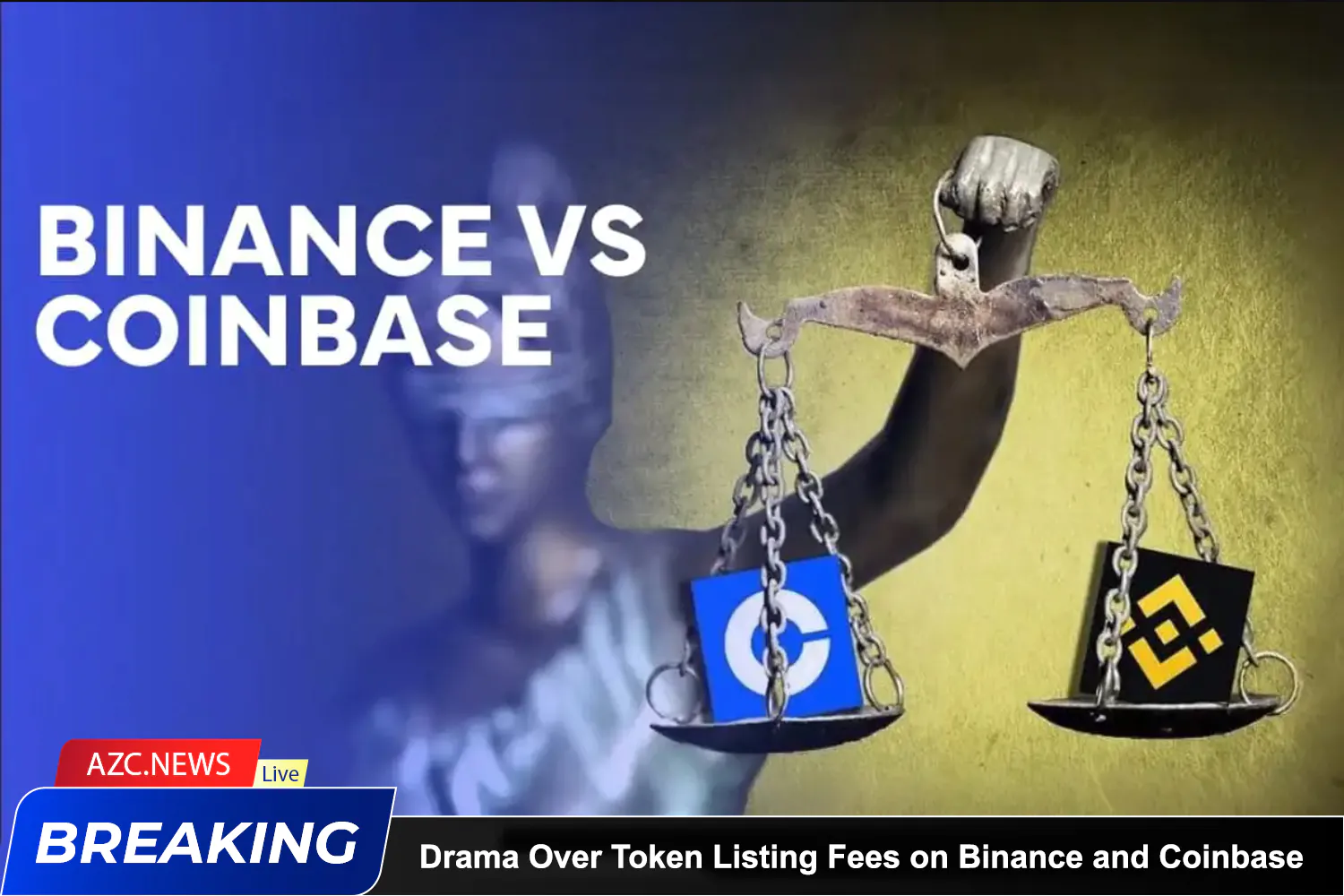The crypto community has just witnessed an intense “clash” on the X platform, centering around the issue of token listing fees on Binance. This war of words between industry “giants” has exposed not only Binance but also Coinbase, sparking widespread debate and raising questions about the future of centralized exchanges.
Simon, CEO of Moonrock Capital, Sparks the Drama
The drama began when Simon, CEO of Moonrock Capital, dropped a bombshell: a tier-1 project with hundreds of millions of dollars in funding had waited over a year to be “approved” by Binance. What infuriated him was Binance’s demand for 15% of the project’s total token supply.
Imagine this: projects are required to pay between $50 million and $100 million just to get listed on Binance. This isn’t just an outrageous fee; it’s the main reason token values drop
Simon expressed indignantly.
CEO of Coinbase, Andre Cronje, and Justin Sun Escalate the Drama
Seeing an opportunity, Brian Armstrong, CEO of Coinbase, quickly joined in with a cleverly veiled marketing ploy:
Listing on Coinbase is completely free. Send us your listing requests, and we might be able to help. Of course, decentralized exchanges are also a great option, which we fully support.
Responding in the comments, Andre Cronje, the “father” of Sonic (formerly Fantom), unexpectedly “turned the tables” with an accusation:
Binance never charged us fees, while Coinbase continuously demanded amounts ranging from $30 million to $300 million, with the latest being $60 million.
Justin Sun, founder of TRON, quickly “fueled the fire,” revealing:
Coinbase once requested 500 million TRX (about $80 million) along with a $250 million Bitcoin deposit to get listed.
Yi He, Binance Co-founder, Steps In
In the midst of the drama, Yi He, co-founder of Binance, stepped in to address the issue. She affirmed that all information regarding token allocations is transparently available on Binance:
A project is only declined if it fails to pass our evaluation process, regardless of how much money or tokens they are willing to offer. Everyone can verify token allocation ratios of projects on Binance for themselves.
Yi He also clarified the airdrop program:
All airdrops on Launchpool are transparent, but don’t assume that simply offering tokens guarantees a listing. If a project is willing to allocate 20% of its supply for airdrops and wants to collaborate, please contact us through Binance Web3 Wallet.
Simon immediately responded:
So, are you saying that everything was fabricated and that Binance has never asked any project for 15% of their tokens? Regardless of what you call it, you’re still taking from the founders.
So far, Yi He has not responded to Simon’s question.
Related: DWF Labs Considers Suing Eugene Ng for Malicious Intent Towards a Partner
Hidden Truths Revealed
This drama has not only sparked debate over transparency in listing processes but has also raised questions about the role of centralized exchanges. Recently, the listing of layer-2 Scroll on Binance, along with allegations of fraud, has sparked outrage, with some claiming that this move goes against the spirit of decentralization.
Notably, this is not the first time Yi He has had to step in to defend Binance. Earlier in February 2024, following the listing of RONIN from Ronin Network, Binance faced allegations of insider trading and price manipulation, forcing this “powerful woman” to personally address and clarify the issue.












